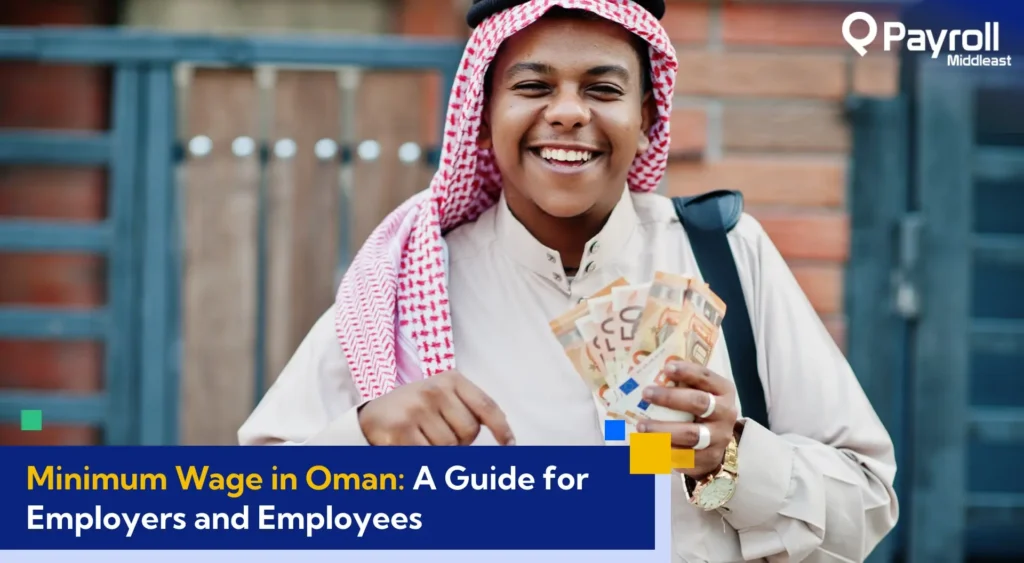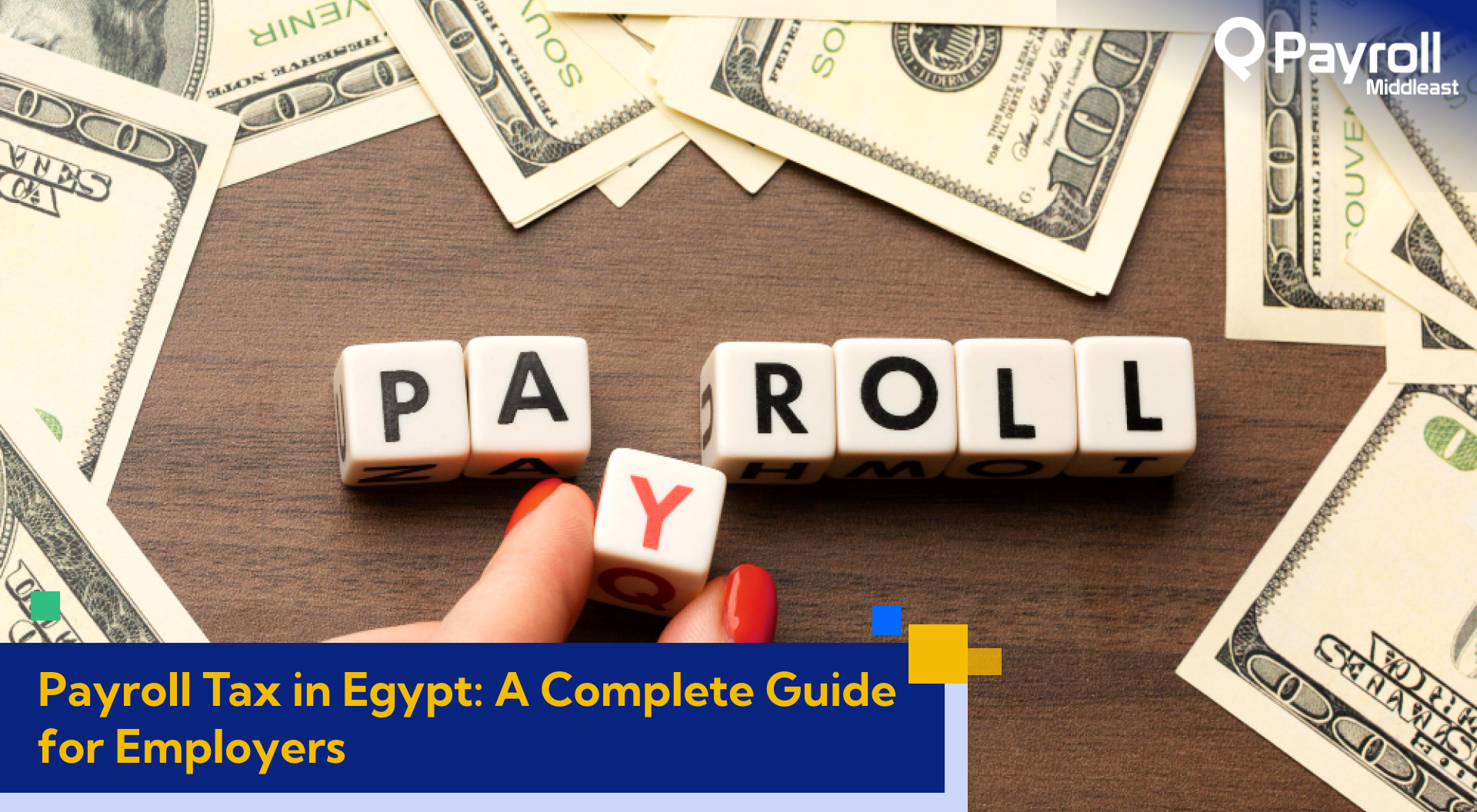Working in Oman can be very fulfilling as it provides many career opportunities. For an employer or an employee, it is very important to know the minimum wage in Oman. This provides the baseline for proper payment thus protecting the effort invested by the individuals into their work.
In this guide, we will discuss issues such as salary, standards of employment, emergency leave and other topics such as emergency leave in Oman so as to help understand the said nation, its sociological aspects as well as your rights and responsibilities. So, let’s get started!
Understanding the Minimum Wage in Oman
The minimum wage in Oman refers to the lowest legal pay that employers must give their workers. This ensures that all employees have a basic livelihood to cover their needs on a daily basis. Oman in June 2021 outlined its first ever minimum wage of 325 OMR. Prior to that it had no such wage benchmarks.
However, in recent years, the government introduced clear policies to establish fair pay and protect workers’ rights.
The role of the new salary structure is to ensure that everyone gets paid fairly while also contributing to the economy. This is a win-win scenario both for the employees and the employers.
How Much is the Minimum Wage in Oman?
The Omani Government defined regulated minimum wage in 2021. With regard to the requirements of low skilled and high skilled workers, the lowest monthly salary which a worker should be paid is 325 OMR. This is the basic amount that is supposed to meet the basic requirements of the workers, such as, food, housing, and transport among other things.
The amount of 325 OMR which is the monthly payment is comfortable for the expatriates as well as Omani citizens. However, this being the minimum, many employees also surpass this due to the kind of industry, level, and experience as well as profession possessed by them.
In this case, an employer in Oman is supposed to adhere to these prescribed minimum salary requirements so as to avoid the penalty of the law, while the employee uses it as a baseline.
Average Salary in Oman: How Does it Compare?
Although the minimum wage is a guiding factor, other elements such as the job title, experience level, skills, and industry have a bearing on the average salary in Oman. To illustrate, oil and gas, finance, healthcare and education industries have the tendency to provide better pay since they absorb more technical expertise.
On average:
- Monthly wages for new employees can be anywhere from 350 to 450 OMR.
- The salary for intermediate workers ranges between 700 and 1,200 OR on a monthly basis.
- In addition, highly skilled executives or top management can receive up to 2,000 OMR and above depending on their specific skills on the job.
This would imply that while the lower limit is set at 350 OMR, there is so much room for promotion and higher salaries depending on how in-depth qualifies for a higher position, amount of experience, and how demanding the role is.
Rights and Responsibilities for Employers
If you are an employer in Oman, you must follow labor laws to stay out of legal trouble. Paying at least the minimum wage in Oman is one of the important duties of an employer. Here are a few necessary points that employers should remember:
- Following Minimum Wage Laws
Employers are obliged to pay their employees a minimum of this amount, 350 OR, every month. Failure to heed this might lead to penalties and other legal actions.
- What Contracts Say Matters
Employment contracts should outline the negotiated salary and details of employment. It is the employer’s responsibility to make sure that workers understand their exact salary structure and any additional benefits related to work.
- Understanding the Labor Laws of Oman
Employers should be aware of local employment laws, such as the ones on emergency leave in Oman and other employee rights. These are set in place to ensure a just work environment for all concerned.
- Ensuring Safety at Work
It is the responsibility of every employer to ensure the safety of employees by providing a healthy and safe workplace. This involves providing appropriate safety equipment and following occupational health standards.
Adherence to these rules may build trust and loyalty among employees, creating a positive working relationship.
Employee Rights: What You Need to Know
Employees in Oman are entitled to certain rights under labor laws, and understanding these can help you advocate for yourself in the workplace. Knowing your rights can also ensure that you have fair working conditions, even if you’re earning just the minimum wage in Oman.
1. Guaranteed Minimum Wage
Employees have the right to receive at least 350 OR per month. If you earn less than this, you can contact the relevant labour authority to ensure your rights are protected.
2. Emergency Leave in Oman
Employees are entitled to emergency leave when working in Oman; this allows workers to take time off during emergencies, such as family issues or other unforeseen events. This makes sure that workers do not lose their jobs because of urgent personal circumstances.
3. Working Hours and Fair Pay
The working hours in Oman can not exceed 48 hours in a week. Employers should not compel workers to overwork without paying them well for it. Overtime, also, has to be salaried according to the labor law stipulations.
4. Safety at Work
The workplace shall be safe. This implies measures on minimum health risk, appropriate training, and necessary precautions to safeguard the workforce against hazardous conditions.
5. End-of-Service Gratuity
Employees are entitled to an end-of-service gratuity in Oman, which is considered a kind of cash award given to them at the end of their employment contract. This is added motivation and security for employees.
Challenges with the Minimum Wage in Oman
While the minimum wage in Oman offers financial security for workers, both employers and employees face certain challenges:
1. Inflation
The cost of living can affect the real value of 350 OR, especially as prices of basic goods and services fluctuate.
2. Industry Disparities
Certain industries pay significantly more than the minimum wage due to the demand for specialized skills. This creates disparities between workers in different sectors.
3. Compliance for Employers
While the minimum wage is a requirement, some employers might struggle with compliance due to financial challenges. Employers must stay updated on Oman labor laws to avoid violations.
Tips for Employees & Employers
For Employees:
- Know Your Rights: Always check your pay stub to ensure you’re receiving the minimum or agreed amount.
- Familiarize with Local Laws: Learn about emergency leave in Oman and other employee rights to avoid unfair treatment.
- Negotiate Wisely: If you possess specialized skills, don’t hesitate to negotiate a higher salary with your employer.
For Employers:
- Stay Compliant: Always pay at least 350 OR and respect employee rights.
- Prioritize Employee Well-being: Create a positive work environment with fair wages, safe working conditions, and clear communication.
- Understand Legal Updates: Stay informed about changes to labor laws to ensure smooth business operations.
Final Thoughts
The minimum wage in Oman is the basis of fair pay and ensures a basic standard of living among workers. Labor laws state that employers should pay at least 325 OMR monthly to comply, and employees must know their rights to make them advocate for fair treatment.
Whether you’re a worker considering a new role in Oman or an employer managing a team, understanding these labor laws is crucial for a healthy and productive working environment. By prioritizing fairness and adherence to Omani laws, both employees and employers can benefit from successful and smooth working relationships.
The right knowledge, understanding, and respect for the minimum salary of Oman will assure every one of you a fair, legal, and safe workplace.
FAQs:
What is the current minimum wage in Oman?
As of 2025, the minimum wage in Oman is OMR 325 per month for private sector employees. Certain sectors may have specific wage agreements depending on job type and skill level.
Who is entitled to receive the minimum wage in Oman?
All employees working under Omani labor law, including full-time and part-time workers in the private sector, are entitled to receive at least the minimum wage.
Does the minimum wage in Oman vary by nationality?
Yes. The minimum wage primarily applies to Omani nationals. Expatriate employees’ salaries are generally determined by employment contracts and company policies, though they must meet contractual and legal obligations.
Has the minimum wage in Oman changed recently?
Yes, Oman periodically reviews and updates the minimum wage to reflect economic conditions and inflation. The most recent adjustment was in 2022, and authorities continue to monitor for possible future revisions.







